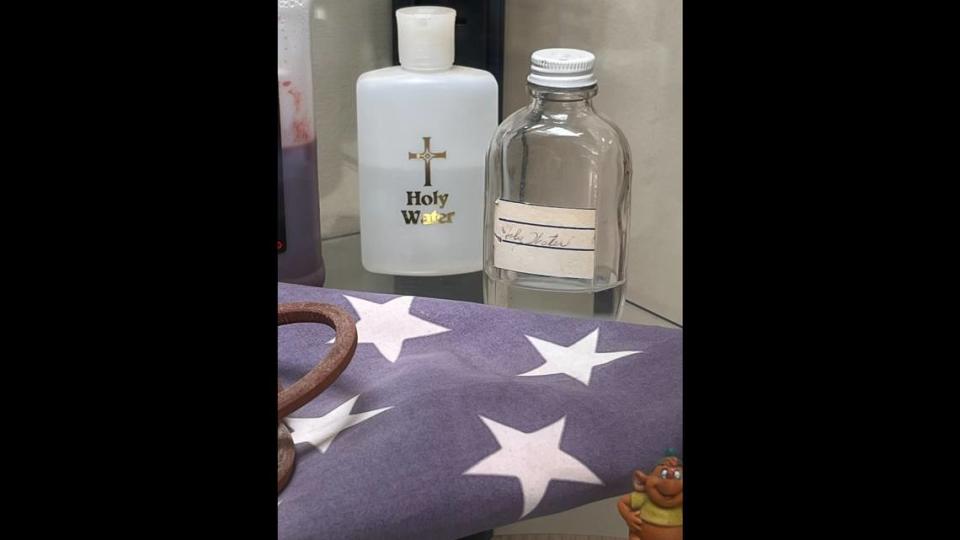Holy water and hand grenades: New hazardous waste facility processes more than paint
Trent Thompson sees no end to Johnson County residents’ ability to produce hazardous waste.
But the ultimate end to most of that waste is recyclable, and now the county will be able to do more and do it better, said Thompson, environmental programs manager in the county’s Department of Health and Environment.
Thompson oversees Johnson County’s new $3.6 million household hazardous waste and reuse facility that opened earlier this summer at 11231 Mastin St. in Overland Park. Thompson said the facility is one of largest in the region. When combined with the city of Olathe’s program, it receives the most waste in Kansas.
Since its inception, the Johnson County program has collected more than 12 million pounds of waste.
For 30 years, the county’s household hazardous waste was taken to a 2,450-square-foot facility in Mission. More than 1.1 million pounds of waste was managed by that facility from July 2021 through June 2022.
The new 9,800-square-foot building in Overland Park, which is on a half-acre of open space, was built on a former car wash that was redeveloped to meet regulations and requirements.
“We are able to store and process more,” Thompson said of the new facility. “Our best estimate is 20 to 30%.”
Thompson said many aspects of the operation surprise people. Few realize the volume of materials that come through the facility, how much is recycled and how the process works, he said.
“Over 80% of all materials received are recycled in one way or the other.”
Some of the waste includes paint; lawn and garden chemicals such as pesticides, herbicides and insecticides; pool chemicals; solvents such as paint thinners, acetone and kerosene; and wood preservatives. The facility also accepts mercury and banned pesticides such as DDT, chlordane, toxaphene and PCBs.
About 178,000 pounds of hazardous waste received at the facility each year is diverted to approved treatment and disposal facilities. This hazardous material was either treated, fuel blended (to be reused as a fuel), incinerated or recycled through innovative hazardous waste disposal methods..
About 76,000 pounds of non-hazardous and universal waste is diverted and recycled each year through vendors. This waste includes light bulbs, batteries, oil, antifreeze and propane. The facility also diverts about 8,500 gallons of latex paint each year that is re-blended and re-distributed to residents, small businesses and the Johnson County Facilities Department.
The blended latex paint is available in white, beige, gray and brown and can be purchased for $20 to $30 for five-gallon buckets. Residents can also shop in the Free Store at the facility, where usable products such as stain, household cleaners and car care products are free to the public.

Those at the facility are sometimes surprised by items dropped off. The most unique might have been the two live grenades — both requiring the attention of a bomb squad, Thompson said.
Among the unusual items on display at the facility are bottles marked as holy water, government rations of pork and a baseball brochure signed by Kansas City Royals Hall of Famer George Brett.
Thompson said operating the facility does has its challenges.
Understandably, he said, these facilities are highly regulated at the state and federal level.
Adhering to compliance requirements can be challenging, so the the staff is highly trained and disciplined on all rules and regulations.
“Also, this program is one of the most popular that the county offers to residents.” he said. “Staff adheres to a by-appointment-only schedule to ensure staff safety and waste volume management. Logistics and materials management is challenging as well when working with multiple vendors.
“People are always finding items in their homes that are dangerous to the health and environment.”
For more information about Johnson County Household Hazardous Waste, go to jocogov.org/department/environment/hazardous-materials/accepted-items.

